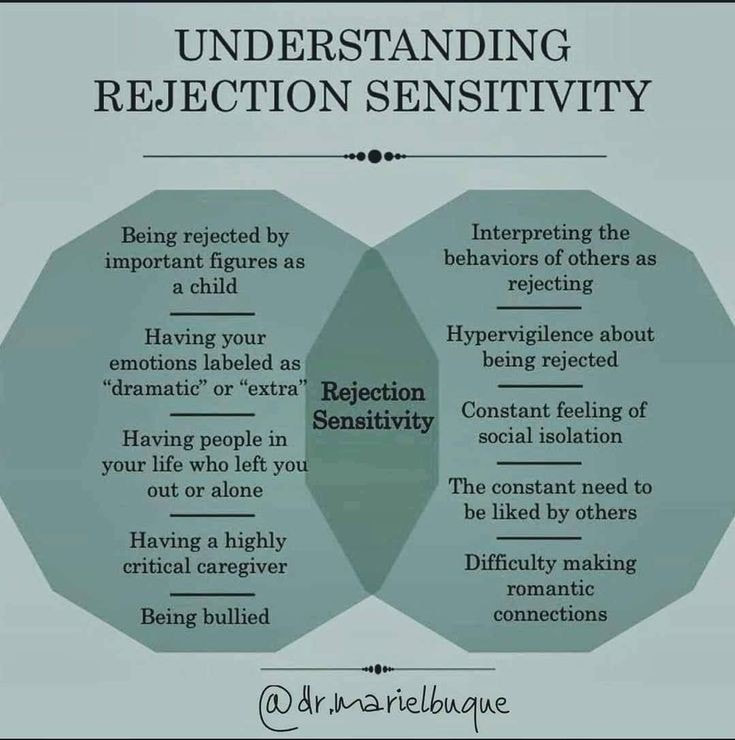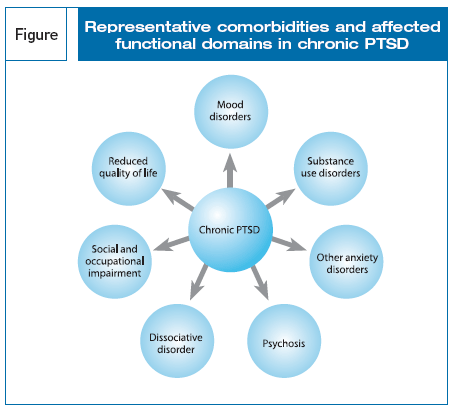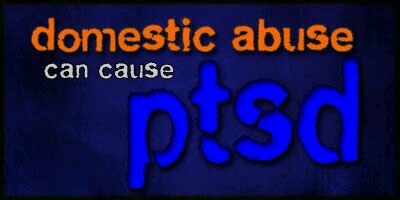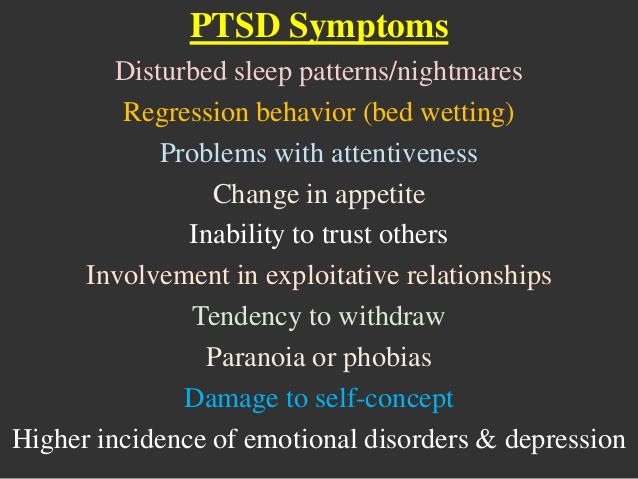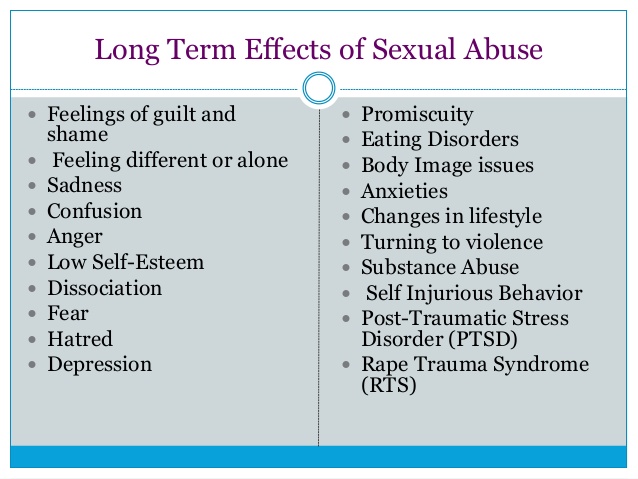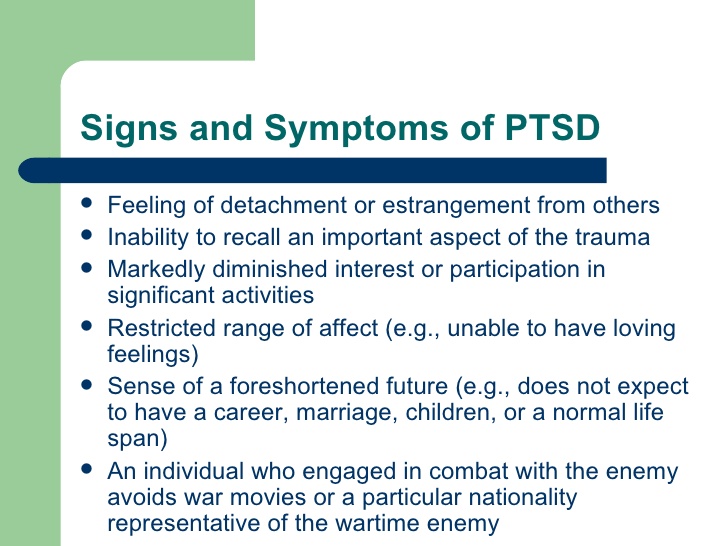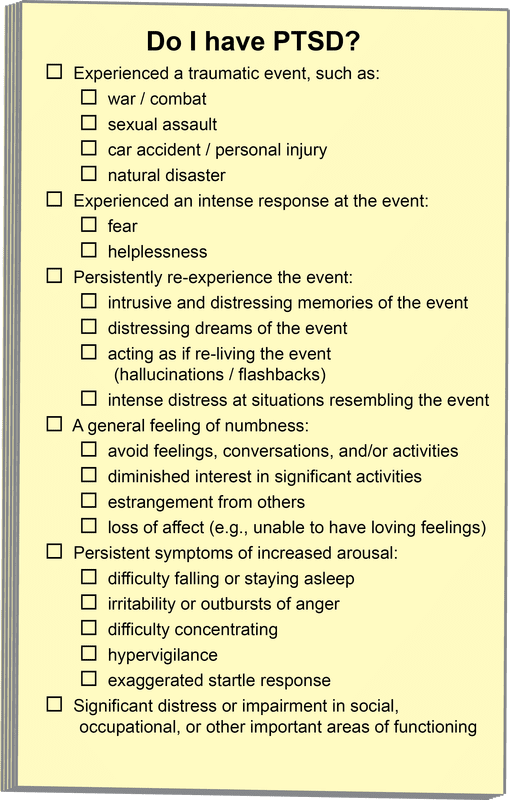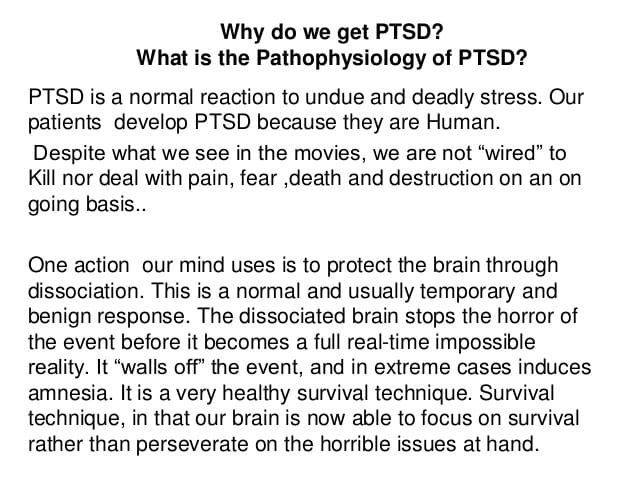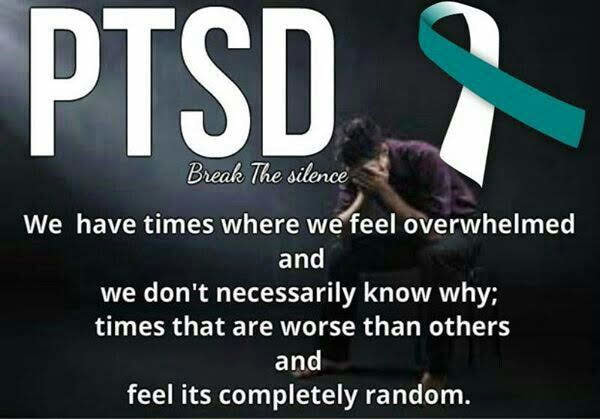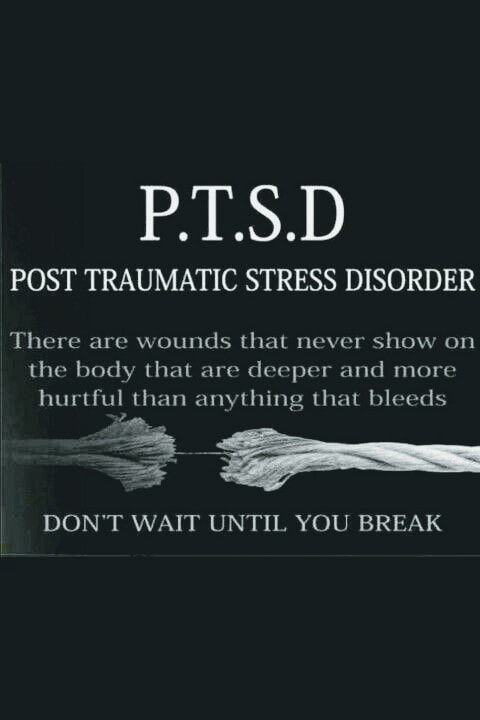PTSD & Complex PTSD
TraumaPost-Traumatic Stress Disorder (PTSD) is the human response to experiencing a traumatic event - a life-threatening or extremely distressing situation that causes a person to feel intense fear, horror or a sense of helplessness. This listing is a mix of symptoms of Complex (PTSD), which is the result of months or years of exposure to excessively controlled sexual and domestic life situations (survivors of domestic battering, marital or partner rape, childhood physical or sexual abuse and organized sexual exploitation). PTSD can cause severe problems at home or at work. Every individual is different and will have different combinations of symptoms. Most have depression and or panic and anxiety attacks. The issue of substance abuse or addiction is to be considered. 1) Alienation, feeling disconnected or abandoned from the purpose of the world, feeling all alone, unwanted and rejected 2) Avoiding activities that arouse memories of the trauma/abuse 3) Compulsive or extremely inhibited sexuality 4) Cynicism, believing others are motivated by selfishness 5) Depression (sad, crying, angry, easily annoyed, on edge. These moods may happen in cycles or may be present most of the time) 6) Dissociative (spacing out) 7) Distrust of authority figures 8) Distrust of those previously trusted 9) Emotional distancing (not letting others see your true feelings) 10) Expressing a limited range of emotions 11) Explosive anger or over-controlled anger 12) Flashbacks (intrusive memories) or feeling like you are reliving the abuse 13) Feeling helpless 14) Feeling hopeless, despair 15) Hyper-vigilance (watchful,always in a ready state to respond to potential crisis or trauma) 16) Loss of interest in activities or work 17) Loss of sustaining faith 18) Memory deficits or blackouts 19) Negative self image 20) Nightmares 21) Numbness, inability to feel emotions 22) Panic attacks 23) Problems with intimate relationships 24) Repeated failures of self-protection 25) Self-injury (cutting, burning, slapping yourself, clawing your arms until you draw blood, pulling hair out) 26) Separation issues 27) Shame, guilt and self-blame 28) Sleep disturbances, insomnia 29 ) Suicidal feelings, suicidal thoughts, suicidal actions (reckless behaviors) 30) Survivor guilt (feeling guilty that you lived when others don't make it through their experience alive) 31) Withdrawal or isolation from family, friends, etc. Coping With PTSD It is common for people to feel that no matter what they've faced or lived with, no matter how extreme, they should be able to carry on. But sometimes people face situations that are so traumatic that they may become unable to cope and function in their daily lives. Some people become so distressed by memories of the trauma – memories that won’t go away – that they begin to live their lives trying to avoid any reminders of what happened to them. A person who feels this way months after a traumatic experience has passed may be suffering from Post-traumatic Stress Disorder, or PTSD, a serious and common health condition. For these people, getting beyond the trauma and overcoming PTSD requires the help of a professional. It is usually a continuing challenge for survivors of sexual assault or any other trauma to cope with PTSD symptoms and the problems they cause.Through treatment survivors often learn how to cope more effectively. Recovering from PTSD is an ongoing, daily process. Healing doesn't mean that a survivor will forget the sexual assault or have no emotional pain when remembering the assault. Some level of continuing reaction to memories is normal and reflects a normal body and mind. The healing process will lead to fewer reactions and reactions that are less intense. Active coping means recognizing and accepting the impact of the traumatic experiences and then taking concrete actions to improve one's life. Positive coping actions are those that help us to reduce panic and anxiety in our life and lessen other distressing reactions we might have. Positive coping skill we need to learn include: Learning about trauma and PTSD- It is helpful for trauma survivors to learn more about PTSD and how it affects them. PTSD is common for a lot of people. Survivors that get treatment and learn to recognize what upsets them will be in a better position to cope with the symptoms of PTSD. Talking with other people for support- When survivors are able to talk about their abuse with others, something helpful happens. Survivors must choose their support people carefully and clearly ask for what they need. Seeking support from others will help you feel less alone and feel supported and understood. It is often best to talk to a professional counselor about issues related to the abuse you experienced: they are more likely to understand the trauma and its effects than friends or family. It is also helpful to seek support from a survivor support group. Being in a group with others who have PTSD may help reduce one's sense of isolation, rebuilding trust in others and provide a great opportunity to contribute to the recovery of other survivors who share the same experience as you. Talking with your doctor about PTSD- Part of taking care of ourselves means mobilizing the helping resources around us. Our doctor can take care of our physical health better if he or she knows about our PTSD. Doctors can refer you to more specialized and expert help. Taking prescribed medication to tackle PTSD- Many people with PTSD have found it helpful to take medication. It helps survivors to improve their sleep, panic, anxiety, irritability and anger. Practicing relaxation skills- These can include prayer, listening to soothing music, spending time in nature, fishing, breathing exercises, meditation, muscular relaxation exercises, walking, etc. These activities will help reduce negative reactions to thoughts, feelings and perceptions. Calling for help- Sometimes PTSD symptoms worsen and ordinary efforts at coping don't seem to work. Survivors may feel depressed or fearful, on edge. At these times, it is important to reach out and call your counselor, who can help you turn things around. |
PTSD: Dissociation Nightmares Night Terrors Screaming in your sleep Feeling guilt Poor concentration Poor judgement Survivor's guilt Insomnia Panic Attacks Anxiety Attacks Apathy Avoidance, Isolation Short-term memory loss Irritability Anger |
